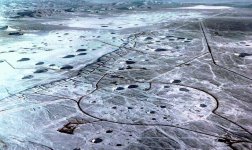Good gh0d what a hopeless pile of codswallop. Uranium's about as common in soil as iron (and yes, as it's not enriched that's exactly the same as "depleted uranium", so you can stop worrying about that, too).
I can't see anyone running out of that anytime soon. Besides, between Bussard's EMC2 group and the HiPER facility that's going up here in the next few years, we'll be on fusion power long, long, long before uranium supply becomes a problem.
Coal, oil and gas supply is already a problem. Hell, the monstrosity up the road at Didcot burns a 100-tonne truckload of coal every 15 minutes. Stick the carbon emission from that in a very, very large gorram pipe and smoke it.
That's just a pointless, anencephalic scare-screed. Sadly, most people are sufficiently uneducated to eat it. *sigh*
I can't see anyone running out of that anytime soon. Besides, between Bussard's EMC2 group and the HiPER facility that's going up here in the next few years, we'll be on fusion power long, long, long before uranium supply becomes a problem.
Coal, oil and gas supply is already a problem. Hell, the monstrosity up the road at Didcot burns a 100-tonne truckload of coal every 15 minutes. Stick the carbon emission from that in a very, very large gorram pipe and smoke it.
That's just a pointless, anencephalic scare-screed. Sadly, most people are sufficiently uneducated to eat it. *sigh*

